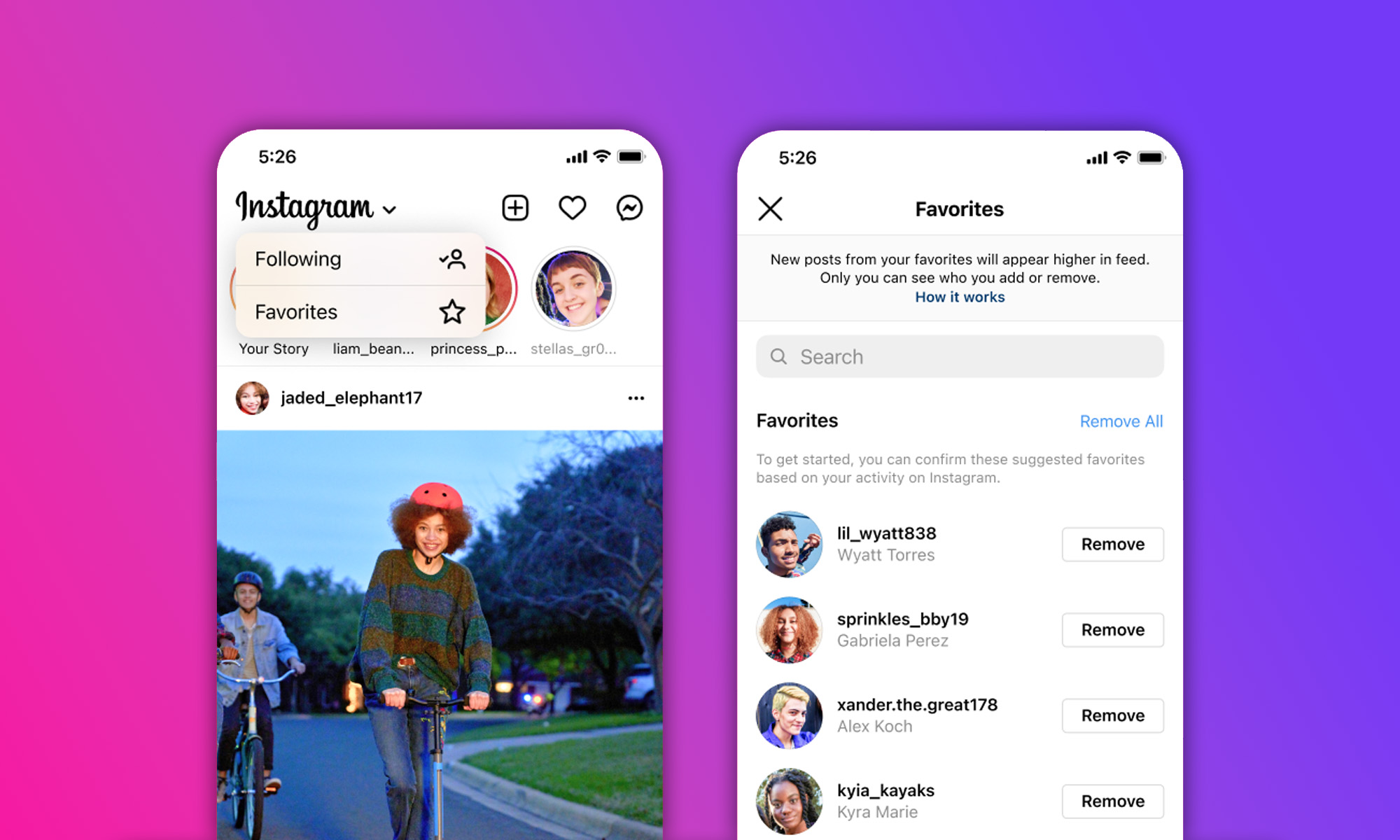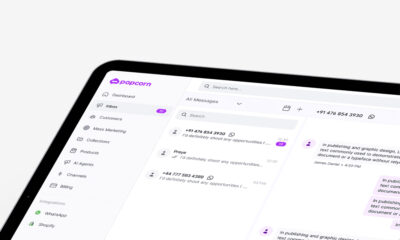News
Instagram’s Chronological Feed Is Now Available For All Users
In addition to the chronological feed, there’s now also a new favorites feed option, which shows the latest posts from a list of chosen accounts.

In 2016, Instagram turned off the ability to display new posts in chronological order, claiming that users were missing many posts, even those posted by their close connections.
The algorithmic home feed took over, and it has been dictating what Instagram users see until now. After more than five years and many heated discussions about how the algorithmic home feed works, the ability to display new posts in chronological order is finally back.
“We want you to be able to shape Instagram into the best possible experience, and giving you ways to quickly see what you’re most interested in is an important step in that direction,” writes Adam Mosseri, Head of Instagram, in a blog post.
The decision to bring back the chronological feed comes after last year’s Senate hearing, during which Mosseri was asked if he believed users should be able to use the app without being manipulated by algorithms. The hearing prompted Instagram to say that it would give its users more freedom, and the social network has finally delivered on that promise.
Also Read: How To Find & Cancel Pending Instagram Requests
In addition to the chronological feed, there’s now also a new favorites feed option, which shows the latest posts from a list of chosen accounts.

To activate the chronological and favorites feeds:
- Launch the Instagram app on your smartphone.
- Tap the Instagram logo in the top left corner.
- Choose Following to see posts in chronological order or Favorites to see the latest posts from chosen accounts.
Unfortunately, the change doesn’t stick, which means that Instagram’s algorithmic feed will be back every time you reopen the Instagram app.
Another limitation is that it’s not possible to see Stories from the chronological and favorites feeds, making them feel somewhat inferior to the algorithmic feed, and that’s probably exactly how Instagram wants it to feel in order to steer its users toward the default experience.
News
1,000 Drones Light The Dubai Sky For AC Milan Celebration
Cyberdrone’s groundbreaking display marked 125 years of AC Milan football club and the 1st-year anniversary of Casa Milan Dubai.

Cyberdrone, a leading UAV display company based in Dubai, put on a breathtaking drone light show on Monday to honor two significant football milestones: AC Milan’s 125th anniversary and the one-year anniversary of Casa Milan Dubai.
The spectacle involved 1,000 drones working in perfect harmony to project AC Milan’s iconic imagery against the city’s night sky. Highlights included the UAVs synchronizing to form the club’s iconic crest, the signature red and black jersey, and a special emblem marking its 125th year. The intricate performance demanded meticulous planning, not just in terms of choreography, but also in dealing with the necessary permits and logistics.

“Our goal was to spotlight AC Milan’s legacy through a stunning visual narrative,” explained Mohamed Munjed Abdulla, Director of Sales at Cyberdrone. “We celebrated the club’s history, its Dubai milestone, and the universal love for football. The show also enhanced AC Milan’s regional presence, growing its fanbase through a cutting-edge, memorable experience. Drone shows are unparalleled in leaving lasting impressions, making them perfect for driving partnerships and growth”.
Also Read: Joby Begins Construction Of Dubai’s First Vertiport For Air Taxis
Greta Nardeschi, AC Milan’s Regional Director for MENA, echoed the sentiment, adding: “Collaborating with Cyberdrone for this 1,000-drone performance allowed us to connect with our fans in innovative ways. It gave us a unique opportunity to surprise and inspire audiences while elevating our Club’s visibility and that of our partners. Cyberdrone truly helped us take AC Milan to new heights”.
This groundbreaking drone display sets a new benchmark for the Middle East’s sports sector, which already contributes around $2.4 billion annually to Dubai’s GDP alone. Sporting events also generate $1.76 billion in revenues across the region, while the MENA’s entertainment sector, valued at $41.13 billion, is growing at 9.41% annually, driven by rapid technological advancements.
-

 News2 weeks ago
News2 weeks agoGalaxy Ring 2 May Launch Early As Apple Prepares Competing Device
-

 News2 weeks ago
News2 weeks agoGoogle To Launch AI Hub In Saudi Arabia, Aiming For $71B GDP Boost
-

 News1 week ago
News1 week agoPopcorn AI Raises $500,000 For “Conversational eCommerce”
-

 News1 week ago
News1 week agoJoby Begins Construction Of Dubai’s First Vertiport For Air Taxis


















